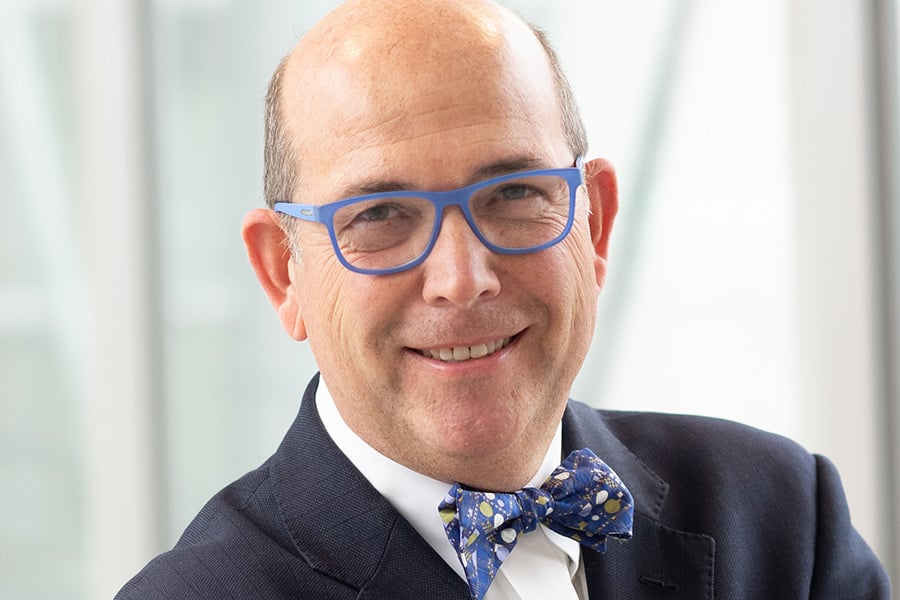

Welcome to the world of the omnichannel adviser, where client relationships are molded through the perfect balance of online and in-person communication and growth-minded advisers expand conversations outside of financial advice.
“[Financial advice] is going to be online, in-person, and on text ... the more high touch that is, the more in-depth and emotional those conversations will be,” said Joseph Coughlin, director of the Massachusetts Institute of Technology AgeLab. “The money conversations you might find to be totally technology-based; the conversations about life, however, may be more in-person.”
Coughlin spoke Wednesday as part of a presentation on longevity planning at the InvestmentNews Women Adviser Summit. Coughlin’s work explores how global demographics, technology and events like the pandemic are changing client behaviors and businesses.
During his presentation, he addressed how financial advisers’ roles have evolved as the pandemic propelled industry trends that were already on the horizon, like hyper personalized customer experiences and an increase in technology use.
“It’s not just for kids anymore, now older adults want them as well,” he said. “This has changed how [clients] relate to their advisers, how they think about the quality and value of advice.”
Advisers ready to grow their assets will embrace the changing terrain of financial advice, one that focuses conversations more on the overall health and well-being of clients, Coughlin said.
“Over 20 years of research, this keeps coming back … the No. 1 way clients judge you is not to make them money or save them money — they expect that, that's why you are in the room and that's why you were hired,” he said. “It’s like walking into Whole Foods and acting surprised that there's food on the shelf.”
The value proposition, particularly among women clients, is advisers' fulfillment of the question: “Do you get me?”
“This is your opportunity,” Coughlin said. “You are going to be the educator and the navigator. A real adviser provides value by anticipating what it is a client will be doing or could be doing in the future.”
In fact, advisers’ value is going to be about curated conversations, it is no longer simply going to be about the money. Sure, money management will be the core of your business, but the pandemic has made life values front and center.
Clients want to know, “Could you help me and did you care about me now?” Coughlin said. “One thing we know from social psychology is if you're not there when I'm stressed, guess what, when things are OK, I'm going to make sure you're not there anymore.”
Further, if an adviser doesn’t direct this conversation to the woman of the household or to both members of the couple, the adviser is fundamentally missing a connection with the person who is going to be navigating longevity planning, Coughlin said.
“Women are three times more likely to go online to do research,” he said. “Your No. 1 competitor is not another adviser but frankly, another girlfriend.”
Women are the ones carefully vetting everything from health care to wealth-related issues. When it comes to the content an adviser provides, if the adviser is not connecting online, they’re not meeting her where she is.
Advisers can prepare for these conversations by first anticipating that there will be more communications with clients. Paradoxically, those conversations will be shorter, but deeper and more emotional, Coughlin said.
“[Conversations] are going to be broader in nature,” he said. “Covering far more than money annuities. You’re going to address things like where they live, how they are going to provide care, the cost of transportation ... the things money is used for.”
To that end, advisers are going to need to beef up their staff to include employees who specialize in nonfinancial issues, Coughlin said, to provide clients with a vision of longevity in retirement.
“I want you to be prepared for a new way of thinking,” he said. “The best [advisers] have already been doing this, women in particular.
"Start thinking about the idea of whole engagement,” he said. “How do you engage with the client’s mind, body and soul?”

Eliseo Prisno, a former Merrill advisor, allegedly collected unapproved fees from Filipino clients by secretly accessing their accounts at two separate brokerages.

The Harford, Connecticut-based RIA is expanding into a new market in the mid-Atlantic region while crossing another billion-dollar milestone.

The Wall Street giant's global wealth head says affluent clients are shifting away from America amid growing fallout from President Donald Trump's hardline politics.

Chief economists, advisors, and chief investment officers share their reactions to the June US employment report.

"This shouldn’t be hard to ban, but neither party will do it. So offensive to the people they serve," RIA titan Peter Mallouk said in a post that referenced Nancy Pelosi's reported stock gains.
Orion's Tom Wilson on delivering coordinated, high-touch service in a world where returns alone no longer set you apart.
Barely a decade old, registered index-linked annuities have quickly surged in popularity, thanks to their unique blend of protection and growth potential—an appealing option for investors looking to chart a steadier course through today's choppy market waters, says Myles Lambert, Brighthouse Financial.
